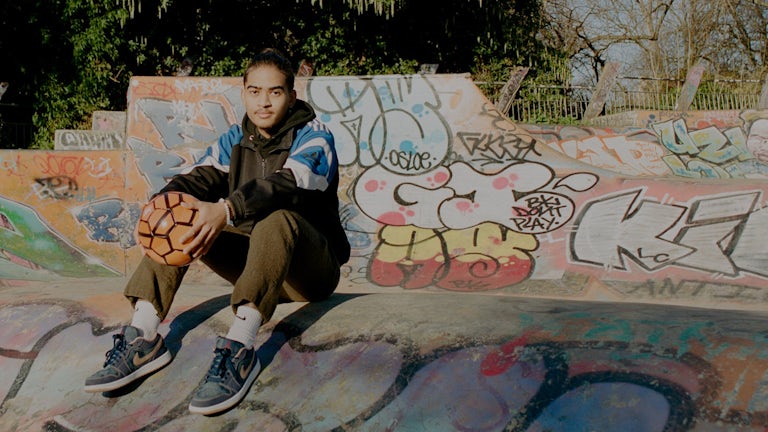Shopping Bag (0)
Your shopping bag is empty


Masculinity in crisis: why brands must do more to challenge stereotypes...
A new report from global creative agency Amplify reveals that young men feel portrayals of masculinity in the media are increasingly out of step with real life. Here, Amplify’s Yasmin Arrigo examines its findings.
Toxic masculinity dominated headlines across the world last week, following the Academy Awards and the shock altercation that threatened to derail the ceremony. But irrespective of that particular incident, the crisis in modern masculinity is never far from the headlines, with young men being fed damaging clichés around masculinity on a daily basis by the media and entertainment world.
Traditional male stereotypes abound, from those encouraging men to suppress their emotions through to rigidity around gender roles, with men portrayed as tough, aggressive and the dominant financial providers for the family. These lazy stereotypes persist in everything from films to video games and across advertising.
Brands have a crucial role to play in addressing how men are perceived in society, yet despite the ASA’s ban on gender stereotyping in 2019, many young men in the UK do not see themselves represented.
Amplify recently surveyed more than 2,000 men aged 16 to 24 across the UK on all aspects of masculinity. Our Young Men on Masculinity research showed that 61% believe that brands have a responsibility in shaping modern masculinity, but only 54% of young men we questioned said they feel seen in advertising. The majority (70%) of respondents to our survey felt that masculinity, or parts of it, are toxic while a quarter said that “society’s expectations of my gender” negatively impact their mental health.
Some brands are making progress, however. When asked which brand best represents modern masculinity, the respondents to our survey placed Nike first, followed by Lynx, JD Sports, YouTube and PlayStation. It’s no surprise to see Nike topping the list – the brand is a powerful cultural force that has leveraged its platform to try to change the narrative around gender in sport. Its recent Play New campaign explores masculinity, with a talking football rattling off a series of macho clichés including ‘nice guys finish last’, until Manchester United player and activist Marcus Rashford appears and the ball is kicked away.
Similarly, Lynx which placed second on the list, moved away from its reliance on gender stereotypes, and ‘ladverts’ in recent years, with including 2019’s Is it Okay for Guys campaign opening up conversations around masculinity and 2021’s new Lynx Effect refocusing its advertising around humour. This most recent campaign puts the focus back on ‘attractiveness’ but through a refreshingly inclusive lens.
But not all efforts by brands to address the crisis in masculinity have been embraced. Gillette’s controversial ‘We Believe’ advert, which addressed the #MeToo movement, was polarising – with some praising the brand for creating a dialogue around positive masculinity, and others accusing the shaving company of leaping on a bandwagon, with an overly didactic and patronising ad.
And you don’t need to look hard to come across a brand that has lapsed back into outdated stereotypes – Mondelez brand Philadelphia was among the first brands to have an advert banned by the Advertising Standards Authority under the new gender-stereotyping rules, for its portrayal of somewhat ‘hapless and inattentive’ young fathers. Meanwhile, PC Specialist’s ad was banned by the ASA, which reached the conclusion that it perpetuated harmful gender stereotypes by implying only men were interested in technology.
And while some adverts featuring female models have been blasted for portraying unattainable and unhealthy body ideals, somehow the same scrutiny isn’t being applied for men. At a recent Parliament committee meeting on the health impact of negative body image, The Vamps lead guitarist James Brittain-McVey attributed his early body image concerns being triggered by social media ads from "big American surf style companies" featuring ripped models.
Represent
With only 54% of the young men surveyed feeling seen by advertising, it’s crucial that brands don’t perpetuate harmful or outdated stereotypes in their campaigns, instead projecting a more progressive and varied depiction of the many forms masculinity can take. Embracing a diverse and inclusive approach can empower young men to be themselves, in turn helping brands to build authentic connections with the next generation by making them feel seen.
Choose your heroes
Here’s where Nike, Lynx and co nailed it - in choosing the progressive role models across culture to build a more positive and diverse view of masculinity. From Nike giving prominence to Colin Kaepernick and Marcus Rashford, through to Lynx choosing YouTuber Chunkz, the brands that reject toxic masculinity are the ones set to reap the rewards.
Be an ally
Youth audiences increasingly expect brands to act with purpose and not shy away from wider, societal and cultural issues. They want to see brands understand what's important to them and play a positive role, building a fairer, more inclusive and equitable society. This is true of organisations too – the ‘Have a Word’ campaign from the Mayor of London, aimed at tackling violence against women and girls, is being amplified by top football and rugby clubs.
Young men are rejecting traditional definitions of masculinity that don’t match their new reality. Modern definitions of masculinity must evolve, and in tandem, the portrayal of young men in the media and advertising will be an important step towards creating a more inclusive society. As one of our young respondents told us: “Brands and media and all these companies can't just walk through life
anymore and follow the “status quo”. They have to have all these diverse voices and different opinions, and shape the opinions and experiences of people that don't look like them”
In order to engage with this generation, brands need to consider how they can empower and reflect new thinking and expectations of what masculinity means to young audiences in the UK. More than ever, brands must embrace diverse representation and help eradicate outdated stereotypes to connect with today’s consumers in an authentic, compelling and purposeful way.
Yasmin Arrigo is global brand and editorial director at Amplify.